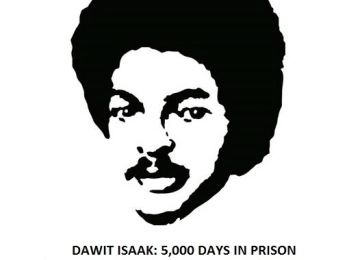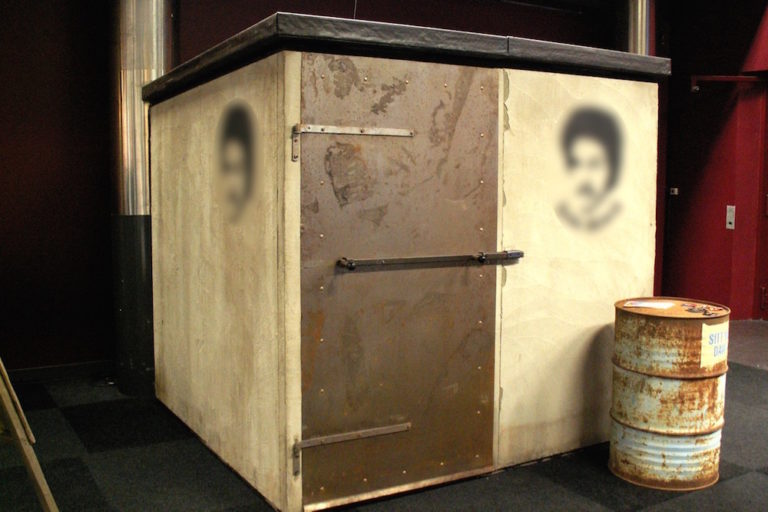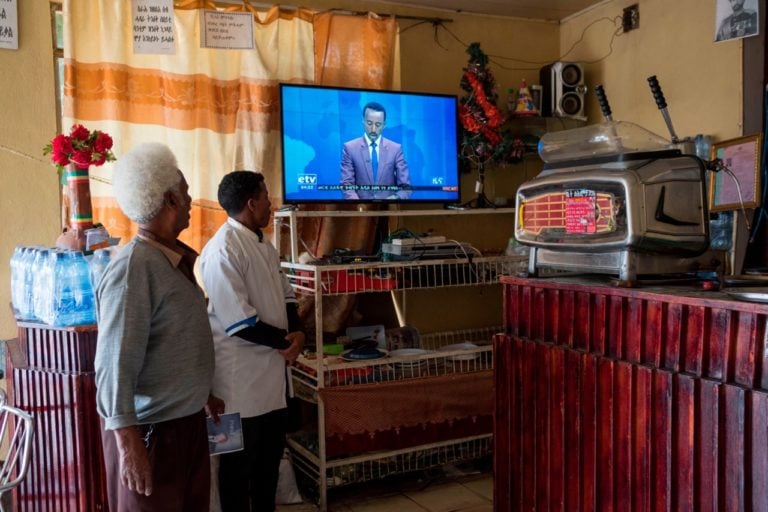Dawit Isaak – co-owner of the weekly newspaper Setit – has spent half of his time in detention in solitary confinement, has been tortured and is in very poor physical and mental health.
This statement was originally published on pen-international.org on 1 June 2015.
Tomorrow [2 June 2015] marks 5,000 days since the Swedish-Eritrean writer and journalist Dawit Isaak and nine other Eritrean journalists were arrested on unknown charges in September 2001. Five thousand days without charge or trial, their whereabouts unknown.
‘Including Isaak, PEN has at least 21 Eritrean writers and journalists on its Case List, all held in circumstances amounting to enforced disappearance, some of whom are believed to have died in the appalling conditions of Eritrean prisons,’ said Marian Botsford Fraser, chair of PEN International’s Writers in Prison Committee. ‘Their fate must be immediately clarified by the Eritrean authorities and, if still alive, they should be released immediately and unconditionally.’
Following the Eritrean authorities’ closure of all eight of the country’s independent newspapers on 18 September 2001, Isaak and at least nine other journalists with the Eritrean private press were rounded up and detained, along with 11 former members of the Eritrean government who had signed an open letter critical of the government. To this day, Isaak and at least five print journalists and all of the politicians remain detained incommunicado without charge or trial, while at least four other journalists have reportedly died in custody. A further four print journalists, arrested prior to and after September 2001, are also still detained incommunicado without charge or trial.
PEN International believes that these writers are being punished for the peaceful expression of their views in writing. The Eritrean authorities have steadfastly refused to confirm why these journalists and politicians have been detained or even whether they are alive or dead. In various media interviews over the years, President Isaias Afewerki has referred to the journalists as ‘spies’ in the pay of the CIA. Political commentators have suggested that the media crackdown was an attempt to stamp out criticism of the Eritrean government’s treatment of students and political dissenters, and of its conflict with Ethiopia.
According to the limited information available, Isaak – co-owner of the weekly newspaper Setit, playwright and writer, born 1964 – has spent half of his time in detention in solitary confinement, has been tortured and is in very poor physical and mental health. He and the other inmates are not allowed any contact with the outside world, and the little information that has escaped the prison walls has suggested that they have been routinely shackled and have received almost no medical care.
The case of Isaak – who holds Swedish citizenship after spending a number of years in the country during the Eritrean war of independence and the subsequent border dispute between Eritrea and Ethiopia – has attracted particular attention internationally. Swedish PEN, along with other writers’ associations, non-governmental organisations and officials in Sweden, have tirelessly pushed for his release. Tomorrow, 2 June, they aim to gather 5,000 people at Sergel Square in Stockholm to show that Dawit Isaak is not forgotten.
‘We are not at liberty to forget,’ says Ola Larsmo, President of Swedish PEN. ‘Dawit Isaak returned to Eritrea from Sweden and showed that serious journalism was possible in a country still marked by a long war. He took an active part in rebuilding his country, with the help of language and honesty. For this, he and his colleagues have been imprisoned and tortured for years.’
‘Dawit Isaak and his colleagues are icons of freedom of expression in our society,’ says Dessale B. Abraham, writer and co-founder of PEN Eritrea. ‘Risking their lives, they spoke truth to power and paved the long and often arduous way towards freedom of expression. Now it is our turn to continue the struggle and work towards achieving their dreams.’
In meetings with government representatives in early 2013, the UN Special Rapporteur on the situation of human rights in Eritrea asked the Eritrean authorities to confirm whether or not the journalists and the former government members were still alive, their whereabouts, state of health and access to medical treatment, and why they had not yet been brought before an independent court to be charged with a crime recognisable under international law. She has yet to receive any response to these questions. In 2014, a UN resolution on the situation in Eritrea called on the authorities to “account for and release all political prisoners, including members of the “G-15” and journalists.”
Some hope was afforded in January 2015 by the unexpected release on bail of six writers and journalists for the Asmara-based Radio Bana after almost six years in detention without charge or trial. They were the last six remaining detainees of around 50 Radio Bana journalists and staff members arrested on 22 February 2009. However, there have been no further reported releases and little or no news on Isaak or the other detained journalists this year.
As of March 2015 the Eritrean government was refusing to cooperate with a UN-mandated Commission of Inquiry on Eritrea or to respond to its requests to visit the country or to obtain information. The Commission is due to report back to the UN General Assembly in October 2015.
In a piece for Swedish PEN’s Dissident Blog, Esayas Isaak, brother of Dawit Isaak, writes: ‘Each day and every minute for Dawit is a severe violation of his human rights. No one deserves this kind of treatment. Every day I am reminded of the vital significance of freedom—something that we usually just take for granted. I often wonder what Dawit is doing. Is he still sane after all these years of uncertainty? Where does he get the strength to persevere? At the moment there are no answers to these questions, but until we get them it is our duty to support him and to spread information about Dawit’s tragic fate.’
Dawit Isaak is an Honorary Member of PEN American Center, PEN Canada, Finnish PEN and Swedish PEN.
The other journalists detained in September 2001 are as follows (all Honorary Members of PEN American Center and PEN Canada):
Emanuel Asrat, editor-in-chief of Zemen (Time)
Temesken Ghebreysus, sports reporter of Keste Debena (Rainbow) and actor, born c. 1967
Mattewos Habteab, chief editor of Meqaleh (Echo), born c. 1973
Dawit Habtemichael, co-founder and assistant chief editor of Meqaleh; also said to be a science teacher, born c. 1973
Seyoum Tsehaye, freelance contributor to Setit, playwright, newspaper, TV and radio journalist and photographer, born 1952
For full details of all journalists and others detained in Eritrea for exercising their right to freedom of expression, please see PEN International’s Case List and its 2013 shadow report to the UN Human Rights Council ahead of the second Universal Periodic Review of Ethiopia.



